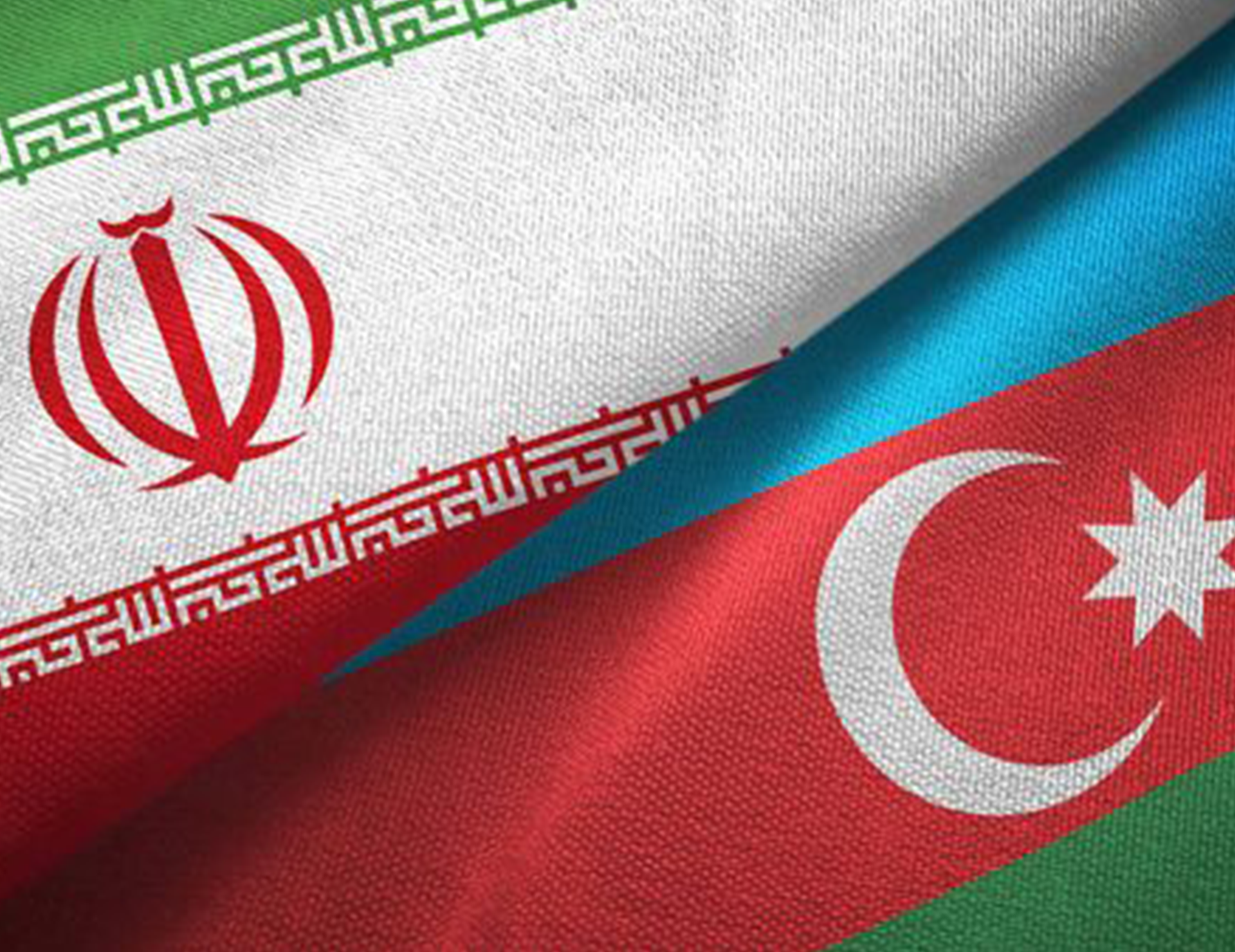Are Azerbaijan and Iran on a collision course?

The last time Azerbaijan summoned an Iranian diplomat to its foreign ministry was in April 2023, when Baku expelled 4 employees of the Iranian embassy due to Tehran’s provocative actions. Since then, bilateral relations have been put back on pragmatic rails. Only until December 29, when a Shia eulogist made a fervent speech against Azerbaijan and Turkey in an event attended by Seyyed Hassan Ameli, Iranian Supreme Leader Ali Khamenei’s representative in Ardabil province. The event was broadcast live on Iran’s state-run News Network, adding to concerns that Tehran was behind the message. On January 1, Baku summoned Iran’s interim chargé d'affaires to demand an end to the promotion of openly anti-Azerbaijani narratives in Iran. On January 7, in an interview with local media, President Ilham Aliyev went a step further demanding an apology from the Iranian side. Given the low likelihood of a high-level apology from Tehran, Azerbaijan-Iran relations could hit another turbulence in the coming weeks.
As the geopolitical sands of the Middle East have shifted in the last few months, mostly to the detriment of Iranian interests, so too has the balance in Azerbaijan-Iran relations. Facing pressures from outside and within, both of which could become more unbearable once Donald Trump enters the White House, Tehran fears Azerbaijan and Turkey could capitalize on Iran’s weakness to assert control over the Zangezur Corridor - a land route that will connect Azerbaijan with its Nakhchivan exclave and Turkey through Armenia - thus sidelining Iran in yet another strategic theatre. Notably, since August 2024, when Baku dropped its demand for the Zangezur Corridor from a peace agreement with Armenia, the issue has taken a backseat in Azerbaijan’s regional diplomacy. During this period, Russia and Iran on the one hand, and Russia and Armenia on the other have had diplomatic spats over their opposing views on the Zangezur Corridor.
At the center of Iran’s concerns lies Turkey’s growing regional footprint after the fall of the Assad regime in December 2024. The Hayat Tahrir al-Sham, the key power broker in post-Assad Syria, sees Turkey as a crucial partner while harboring enmity toward Tehran. Assad’s fall has dealt a huge blow to Iran’s so-called Shia crescent, a vital land route giving Tehran access to the Mediterranean coast, hence to its key ally, Hezbollah via Iraq and Syria. The paralysis of Iran’s axis of resistance after Israeli attacks on Hamas and Hezbollah and now after a Turkey-driven regime change in Damascus has seriously undermined Tehran’s “forward defense” strategy, putting it on a backfoot vis-à-vis Ankara and Tel Aviv. This contrasts sharply with Turkey’s rising star in the neighborhood which will allow Ankara to expand its influence in Syria and Iraq, ultimately reshaping its vicinity in its own image. The United States and Gulf countries coordinate their Syria policy with Turkey, a feat Ankara could not accomplish in the early phases of the Syrian civil war. Azerbaijan declared support for Turkey’s efforts to promote stability in Syria and engaged with Israel to coordinate moves for the post-Assad Middle East. Tehran expects Turkey’s win in Syria could embolden Ankara to replicate this success in other strategic areas, including the South Caucasus, at Iran’s expense. It is a geopolitical déjà vu for the Iranian leadership - Azerbaijan’s victory in the Second Karabakh War in 2020 similarly gave rise to Turkey’s and Israel’s regional clout while undermining Iranian and Russian interests in the South Caucasus.
Unlike Syria, where Iran left border crossings with Iraq without a fight, the South Caucasus’ proximity to Iran’s borders amplifies its strategic significance, compelling Tehran to counter Azerbaijan and Turkey’s ambitions for the Zangezur Corridor. However, after a series of geopolitical setbacks in recent months, Iran might not have the appetite to escalate tensions along its northern borders. Firstly, this strategy did not bear fruit in 2022 and 2023. Instead of forcing Azerbaijan to toe its line in regional affairs, Iranian pressure made Baku more assertive in its anti-Iran stance and pushed it toward deeper cooperation with Turkey and Israel. Secondly, Tehran, already entangled in a costly confrontation with Israel and expectedly belligerent Trump America, might not want to divert its resources elsewhere. It would be a difficult task taking into account the worsening economic situation and growing domestic discontent about the government's risky adventures abroad. All these make Iran an increasingly weaker yet highly unpredictable neighbor for Azerbaijan and Turkey which could push them to weigh engaging Tehran in solutions over relegating it to the margins.
While the Turkey-Iran rivalry in the South Caucasus will heavily influence Azerbaijan-Iran relations in the months ahead, three additional axes of regional competition are set to shape the strategic calculus in Baku and Tehran: Iran-Israel tensions, Russia-Iran collaboration, and Turkey-Israel competition. In 2024, Azerbaijan found itself in a difficult spot when Iran and Israel exchanged direct attacks on each other for the first time in decades. From Tehran’s perspective, the Azerbaijan-Israel partnership extends beyond energy trade and arms deals to Baku’s potential role in the IDF’s operational plans for strikes on Iranian territory. Remarkably, Azerbaijan-Iran normalization not only endured the April and October clashes between Israel and Iran, but the two countries engaged in high-level dialogues and conducted joint military drills. Now, the challenge is the increasing prospects of more serious clashes between Tehran and Tel Aviv (and Washington), especially if the former decides to go nuclear to compensate for deficiencies in its conventional capabilities and weakening of the resistance axis.
Iran’s expanding ties with Russia will also have reverberations for shifting power balances in the South Caucasus. Tehran joined the Russia-led Eurasian Economic Union as an observer state on December 26. Russia and Iran are preparing to sign a comprehensive strategic partnership agreement soon that will expectedly solidify their cooperation in military and economic spheres. For Tehran, Russia is not only a key partner in countering Israeli and American pressures but also a strategic bulwark against the formation of a strong Turkish belt on its northern borders, spanning from Turkey to Central Asia. Russian and Iranian efforts in this regard will clash with Azerbaijan’s regional designs which President Aliyev said on different occasions prioritizes the deepening of politico-economic ties with Turkic countries.
Last but not least, the growing rift between Turkey and Israel over their positions in Syria and Gaza will factor into Baku’s calculations about Iran. Assad’s fall ushered in a larger Turkish and Israeli presence in Syria. On the other hand, it raised the risks of a direct clash between the two countries. Ankara must be worried about the Israeli-Kurdish partnership to challenge the Turkey-backed status quo in Syria. On its side, Tel Aviv fears the Islamist regime may push back Israeli occupation of Syrian territories once it consolidates power throughout the country. And as an Islamist group, the HTS may not remain indifferent to the Palestinian cause. Not surprisingly, the visit of Hikmet Hajiyev, Azerbaijani presidential advisor, to Israel in the early days of Assad's fall was viewed by some as an effort to mediate tensions between Turkey and Israel. Since October 2023, these tensions between the two allied countries put Azerbaijan’s alignment strategy between a rock and a hard place, weakening its hand vis-à-vis Iran.
Recent changes in the Middle East’s geopolitical map put Azerbaijan and Iran in the opposite camps of power competition. Combined with mutual mistrust, it will put additional pressure on bilateral ties. Yet, the two countries might not be interested in testing each other’s waters further as their vital interests lie elsewhere.







